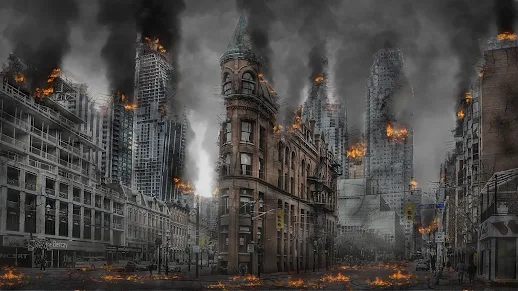In the midst of the ongoing conflict between Israel and Hamas, Gaza finds itself plunged into a state of isolation as communication channels remain severed for over 12 hours. This blackout not only raises concerns about the immediate impact on the people of Gaza but also sparks fears that it could serve as a veil concealing potential rights abuses and atrocities in the besieged enclave.
The intensity of Israel's bombardment of the Strip has taken a toll on Gaza's infrastructure, with Palestinian telecoms provider Jawwal reporting the destruction of all remaining international routes connecting Gaza to the outside world. The consequence is a communication void, leaving Palestinians in Gaza unable to reach out to the world and vice versa.
Nida Ibrahim, reporting for Al Jazeera from Ramallah in the occupied West Bank, describes the situation as one of extreme information scarcity. "Very, very minimal" details are emerging from Gaza, leaving not only the residents within the enclave but also those outside in a state of uncertainty. Friends and families are unable to check on each other's well-being, adding to the anguish and distress.
The impact goes beyond personal connections; humanitarian and media organizations are grappling with the consequences of this blackout. Amnesty International has expressed its difficulty in documenting rights abuses due to the loss of contact with colleagues in Gaza. Erika Guevara Rosas, senior director of research, advocacy, policy, and campaigns, emphasizes that the communications blackout hampers efforts to obtain critical information about human rights violations and war crimes against Palestinian civilians.
Deborah Brown, senior technology and human rights researcher at Human Rights Watch, points out the inherent risk in such blackouts, stating that they could provide cover for mass atrocities and contribute to impunity for human rights violations. The concern resonates globally, with Cindy McCain, executive director of the UN World Food Programme, highlighting the loss of contact with Gaza teams, further complicating aid efforts.
As the blackout persists, the international community watches with growing apprehension, recognizing that the absence of communication not only isolates Gaza physically but also poses a threat to transparency and accountability in the face of a conflict marked by complexity and sensitivity. The urgency to restore communication channels is underscored by the potential for the blackout to shroud the realities on the ground, leaving room for speculation and, more critically, the perpetuation of human rights violations in the shadows of silence.





0 Comments